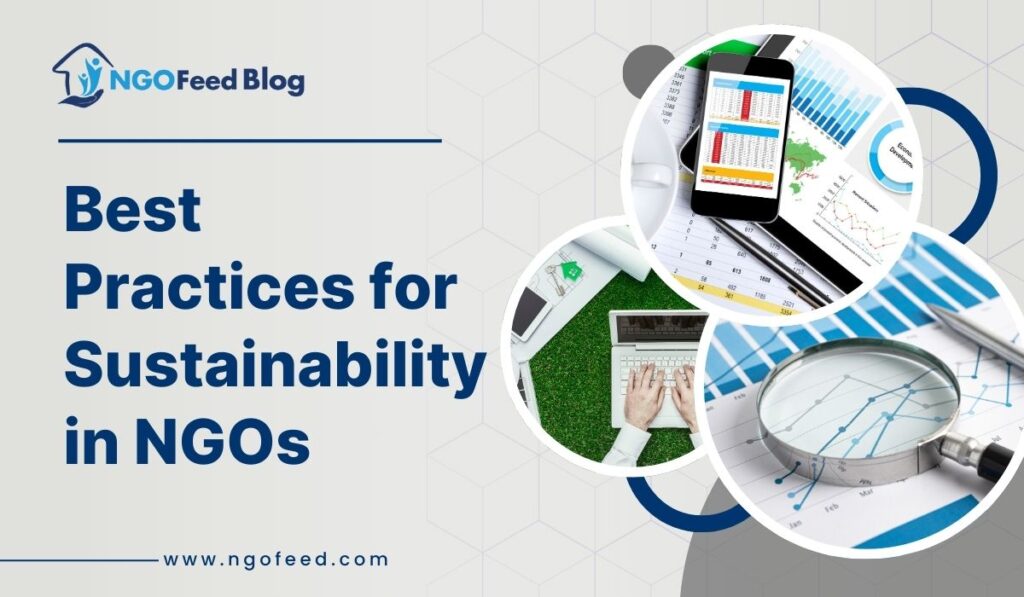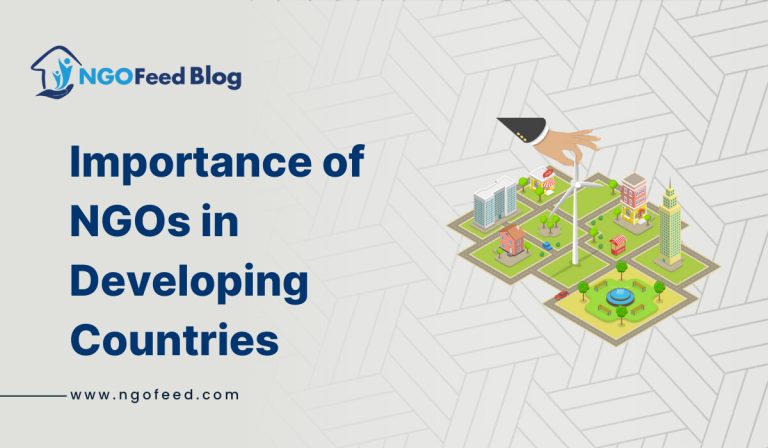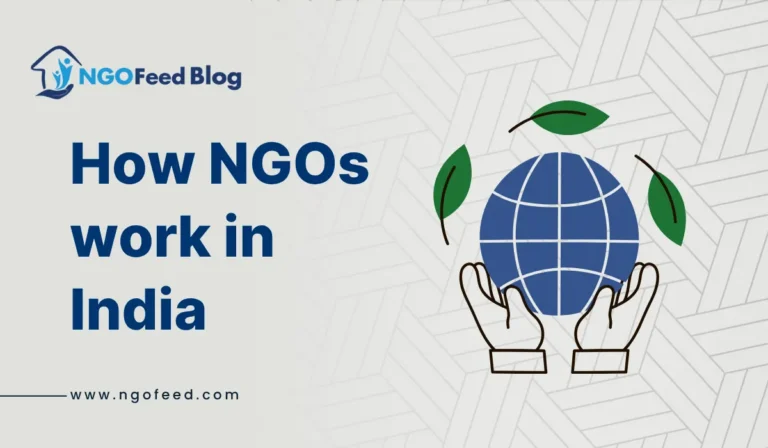Best Practices for Sustainability in NGOs: The World Commission on Environment and Development popularized this concept in 1987. Their report defines the idea as a “development which meets the needs of the present without compromising the ability of future generations to meet their needs.
In other words, they aimed to prevent the stripping of the natural world of resources which future generations will require. As we all know usually, one particular need drives development. Consequently, the wider future impacts are not considered.
As a result, a lot of damage happens due to this type of approach. Thus, the longer we continue to pursue unsustainable development, the more severe the consequences will be. One of the most common is climate change which is being debated widely worldwide.
In fact, climate change is already wreaking havoc on our surroundings. So, the need of the hour is sustainable development. We must ask ourselves, must we leave a scorched planet with an ailing environment for our future generations?
Table of Contents
Pillars of Sustainability
The idea of sustainability is often broken down into three pillars: economic, environmental, and social—also known informally as profits, planet, and people.
In that breakdown, the concept of “economic sustainability” focuses on conserving the natural resources that provide physical inputs for economic production, including both renewable and exhaustible inputs.
The concept of “environmental sustainability” adds greater emphasis on the life support systems, such as the atmosphere or soil, that must be maintained for economic production or human life to even occur. In contrast, social sustainability focuses on the human effects of economic systems, and the category includes attempts to eradicate poverty and hunger, as well as to combat inequality.
Also Read: Role of UNESCAP in India
Benefits of achieving environmental sustainability
Ecological health and resilience
Achieving environmental sustainabilityensures the restoration and maintenance of vital ecosystems. As habitats are preserved and pollution minimized, biodiversity thrives. This not only ensures the survival of countless species but also bolsters the resilience of natural environments against the impacts of climate change. Furthermore, these habitats are able to actively counter climate change by acting as carbon sinks, which absorb and store excess carbon dioxide.
Resource longevity
Sustainable management of natural resources guarantees their availability for generations to come. By using resources efficiently and responsibly, we ensure that future populations inherit a planet rich in the materials necessary for survival and progress.
Improved public health
Communities that incorporate sustainable practices benefit from cleaner air, and water, and reduced exposure to toxins. This results in fewer health issues, reduced medical expenses, and an overall better quality of life.
Social cohesion and reduced conflicts
Embracing environmental sustainability can lead to greater social cohesion. When resources are managed sustainably, there’s reduced competition and conflict over them. Communities become more harmonious, working together for shared, sustainable goals.
Economic growth and stability
Businesses that prioritize sustainability often experience reduced operational costs and tap into growing consumer demand for eco-conscious products. This not only fosters innovation but also promotes business resilience in a dynamically evolving global market. Green sectors also introduce new job opportunities, and sustainable economies attract stable investments.
Also Read: Role of NGOs in Anganwadi
Innovation and market opportunities
A commitment to sustainability drives businesses and societies to innovate, creating eco-friendly technologies, products, and services. This not only opens new markets but also positions companies and countries at the forefront of the global green transition, ensuring long-term relevance and competitiveness.
NGOs Contributions in Best Practices for Sustainability
Non-Governmental Organizations (NGOs) play a crucial role in global development efforts. These organizations, often driven by a strong sense of social responsibility and commitment to positive change, have a significant impact on shaping a better world. This article explores how NGOs in India should contribute to development and highlights their key roles in fostering sustainable progress.
Grassroots Engagement
NGOs are uniquely positioned to engage with local communities and understand their needs and aspirations. By working directly with communities, NGOs can develop tailored, context-specific solutions for various challenges, including poverty, healthcare, education, and environmental conservation. They should prioritize community involvement, ensuring that development projects are responsive to the real needs and desires of those they aim to serve.
Advocacy and Awareness
One of the crucial roles of NGOs is to serve as advocates for marginalized or vulnerable populations. They should raise awareness about social, environmental, and economic issues, mobilizing public opinion and pushing for policy changes. NGOs can influence governments and institutions to adopt more inclusive, sustainable, and equitable policies and practices.
Capacity Building
NGOs should invest in capacity building for local organizations and communities. This includes providing training, resources, and expertise to help individuals and groups become self-sufficient and actively participate in their development. By transferring knowledge and skills, NGOs empower communities to take ownership of their own progress.
Also Read: How Social Media in Amplifying Social Causes
Filling Gaps
NGOs often work in areas where government or private sector services may be lacking. They should complement and supplement public and private efforts by providing essential services, especially in underserved regions. This can include healthcare, education, disaster relief, and microfinance initiatives.
Innovation and Adaptation
To effectively contribute to development, NGOs should embrace innovation and adapt to changing circumstances. They should leverage new technologies and modern management practices to increase efficiency and the impact of their programs. Continuous evaluation and learning are essential to ensure that efforts remain relevant and effective.
Partnership and Collaboration
NGOs should foster collaboration with governments, businesses, and other civil society organizations. Sustainable development often requires a multi-stakeholder approach. By working together, different entities can pool resources, expertise, and influence to tackle complex issues more effectively.
Accountability and Transparency
NGOs must uphold the highest standards of accountability and transparency. Donors, communities, and the public should have confidence that their resources are used effectively and ethically. Accountability ensures that NGOs continue to build trust and maintain their social license to operate.
Conclusion
NGOs are a driving force for positive change in the world. By focusing on grassroots engagement, advocacy, capacity building, filling gaps in services, innovation, collaboration, and accountability, NGOs can make significant contributions to sustainable development. Their dedication to empowering communities and fostering positive change is essential for building a better and more equitable future for all. In a world faced with complex and interconnected challenges, NGOs serve as a beacon of hope and progress.









